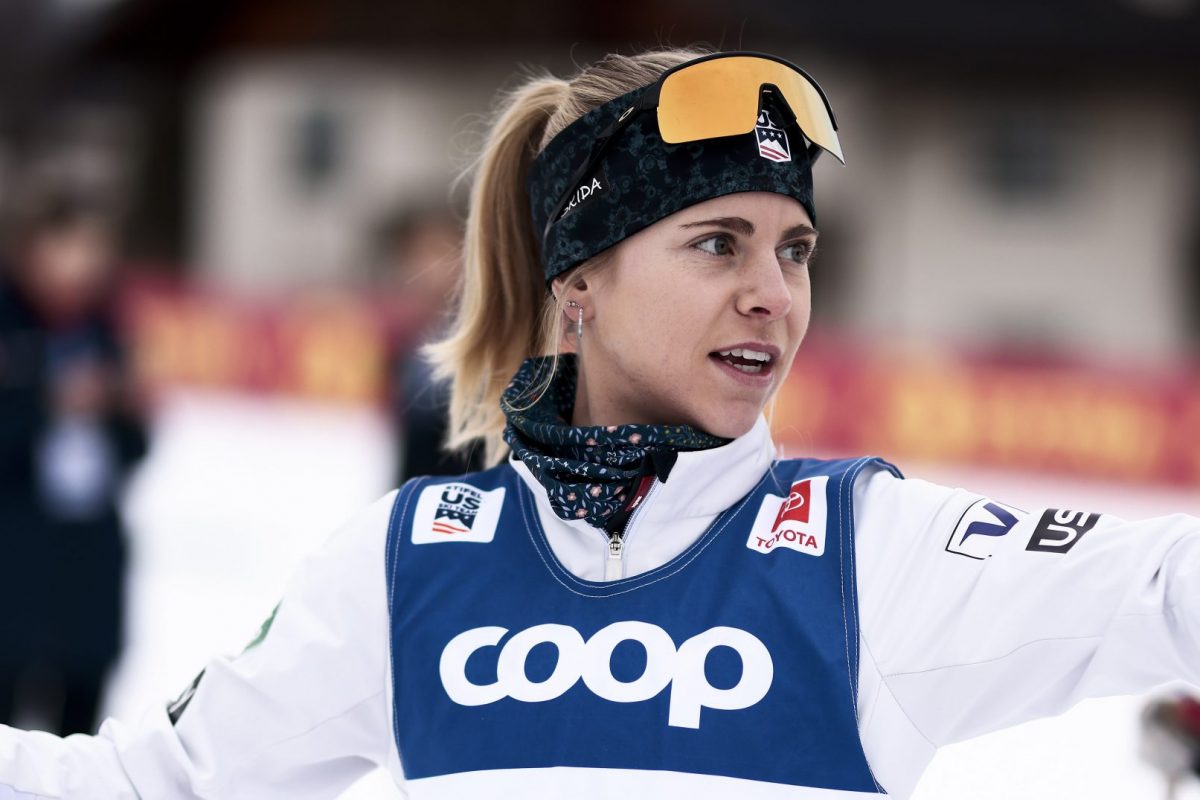Editors note: This is a weekly column highlighting our ski coaches from around the country… including elite coaches, college coaches, high school coaches, volunteer coaches, and learn-to-ski coaches. This is an effort to sample a diverse group of coaches and recognize the people who are the backbone of today’s skiers. If you would like to nominate a coach for an interview, please email robertwhitney99@hotmail.com . Please give coach’s name, email, phone, and a small paragraph describing the nominee. The more diverse, the better.
Erik, 33, is Director and Head Ski Coach at the Alaska Pacific University Nordic Ski Center (APUNSC) in Anchorage, Alaska. Erik recently took the reigns of the APU program this past summer, along with his assistants Holly Brooks and Frode Lillefjell. APUNSC athletes won 12 of 30 medals awarded at the recent U.S. National Championships in Houghton, Michigan, the first week of January.
Erik resides in Anchorage with his wife Gretchen, two daughters Marit and Ingrid, a baby boy due in March….. and the family dog, Soda. He’s a former elite ski racer with an accomplished resume. On a side note, Erik’s also a former Alaska Bush Pilot and is a certified A&P (airplane) mechanic.
, we have 3-4 athletes qualified for the World Championships in Sapporo, 2 National Champions, 3 athletes qualified for U23’s, and a happy/dynamic team with a future in ski racing. The high point was obvious this morning, when on this beautiful January day at 32 degrees, and 50km of perfectly groomed trail. I was standing on the longest climb in Anchorage…. too continuous for FIS standards, watching the APUNSC men’s team ski up the trail, 6 in a row. There is no question in my mind, we have the facilities, the support, and the program to put athletes on the podium… it is just a matter of time and preparation.</p>
<p><b>Describe the transition from elite racer to elite coach?</b><br />
I was an elite athlete for 16 years and always a student of the sport. In my opinion, one word best describes the transition from elite racer to elite coach: Essential. Knowing what it feels like to train and compete gives me a much better understanding of the athlete and makes for a practical implementation of theory. During my career as an athlete I was always interested in coaching and was becoming progressively more involved in helping other athletes. I recently retired from elite racing, and now coaching is my focus.</p>
<p><b>Why APUNSC?</b> </p>
<p>I want to develop American nordic skiers. APU is the only program in the country (other than the US Ski Team) that has the infrastructure to work with athletes year round, from junior through elite, and offer a college education on a flexible schedule. Not to mention top level athletes, unbeatable facilities (including an entire glacier training facility), an extremely supportive environment, and a knowledgeable coaching staff.</p>
<p><b>You come from an extremely active ski family (brothers Lars and Bjorn). Did that aid in your decision to become a ski coach?</b></p>
<p>I do have one heck of an active family! My family has inspired my lifestyle and my desire to help others in sport. My brother Lars is a two time Olympian and currently preparing for the World Championships in Sapporo. My brother Bjorn pursued racing through the NCAA level and now enjoys his time in the Alaskan mountains telemark skiing and doing epic glacier traverses. My wife is a multiple Junior National Champion, World Juniors competitor, NCAA All-American, and is currently one heck of a fast pulk skier with the kids! My parents are both active in the Anchorage ski community and have competed in all sorts of racing from local races all the way up to World Masters. Yeah, definitely a skiing family.</p>
<p><b>If there was one technique piece that you wish all “Intro to Skiing†instructors would teach from the start (or stop), what would it be?</b></p>
<p>Dynamic body position. To find this position, one must relax the knees/ankles and let the body fall forward.</p>
<p><b>Any certain/specific philosophies that you coach by?</b><br />
We have talented athletes in America. We have athletes who can win Olympic medals. I believe that the US is on its way to better results in the World Cup level and Olympic competition. But for this to happen, we need to make the next step, we need to be better prepared both as athletes and as coaches. Training and performance is complicated, yet at the same time it is simple: we need to train better in order to be faster. We need to emphasize that performance is achieved through training. Our counterparts in Europe/Scandinavia are training better at a much younger age. It is accepted amongst skiing physiologists that it takes a solid ten years to develop an athlete to be able to stand on the podium. This is ten years of good training with proper load and progression. We should support the clubs who can start this process. I watch our team, a team with multiple national champions and Olympians train everyday. As they train, I watch the younger skiers being pulled along, I watch them getting stronger. I am optimistic that this “team†is extremely capable and that it will develop immensely over the next few years. Development occurs everyday, and it is best done within a team and the guidance of a coach. But, most importantly, it is done year-round.</p>
<p><b>What do you think your athletes would say about you as a coach?</b><br />
I am not sure what they say about me, but I can tell you what they say about there team……It’s a great team!</p>
<p>2006-07 APUNSC Elite Team/University Team:</p>
<p>Kikkan Randall<br />
Taz Mannix<br />
Kate Pearson<br />
Kate Fitzgerald<br />
Aleta Phelps</p>
<p>Eric Strabel<br />
Brent Knight<br />
Tyson Flaharty<br />
Lars Flora<br />
James Southam<br />
Anders Haugen<br />
Dylan Watts<br />
Chet Fehrman</p>
<p>Thanks Erik!</p>
<p><center><img decoding=)



